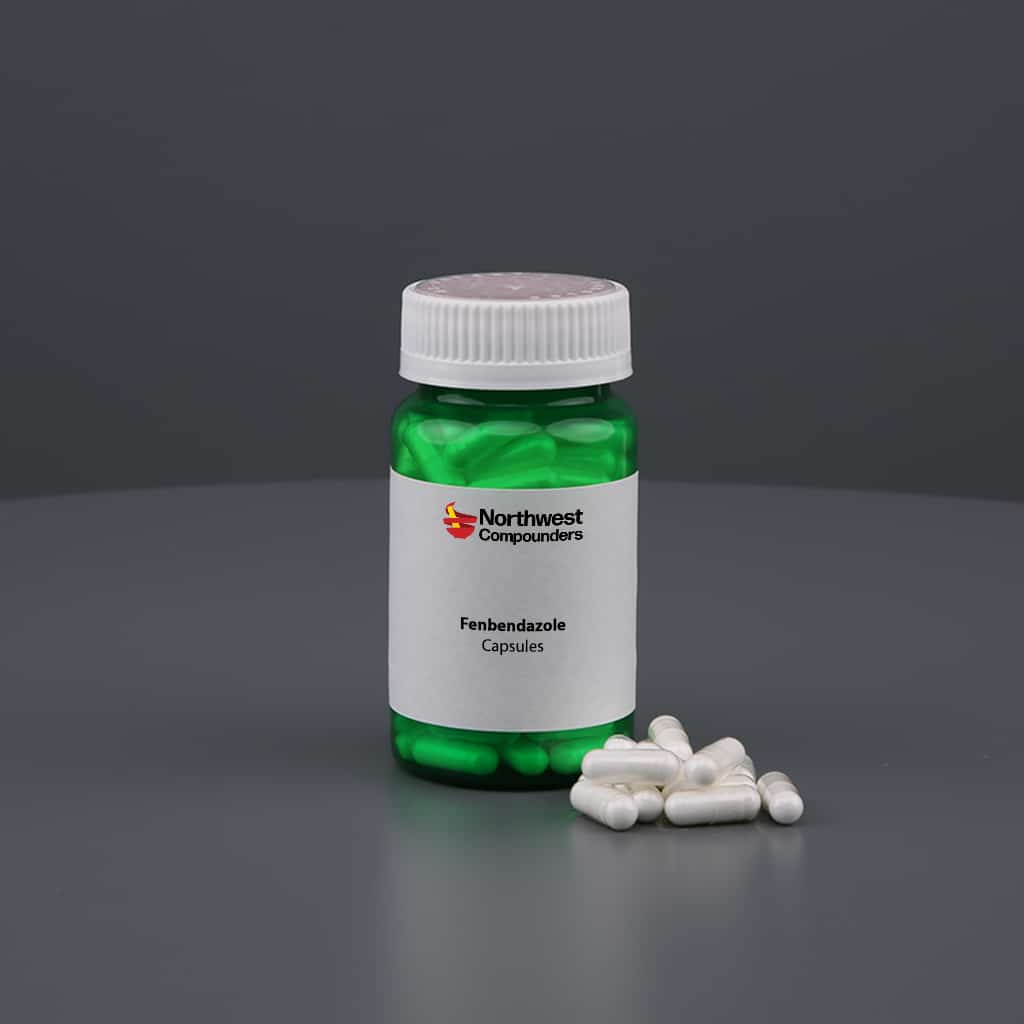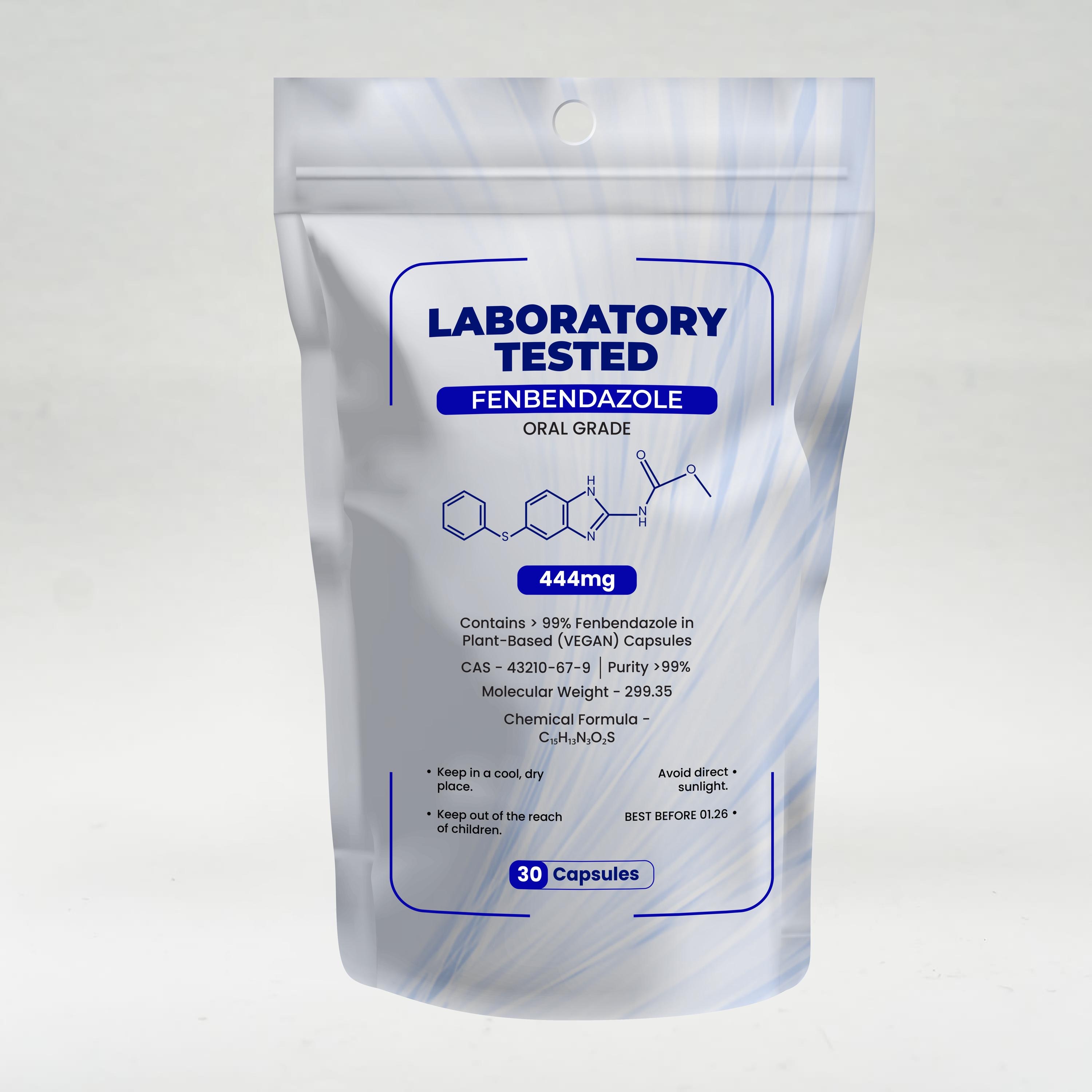Exploring the Mechanisms Behind Fenbendazole and Its Impact on Pet Health And Wellness
Fenbendazole is a commonly used anthelmintic understood for its performance versus different parasites. Its primary system entails the inhibition of microtubule formation, which disrupts vital procedures in these microorganisms. Past its antiparasitic residential or commercial properties, fenbendazole likewise shows up to boost immune responses and possesses anti-inflammatory benefits. Recognizing these diverse results might expose new applications for animal health and wellness. Nonetheless, inquiries continue to be concerning its full potential and security account.
The Pharmacokinetics of Fenbendazole
The pharmacokinetics of fenbendazole, a commonly utilized anthelmintic in veterinary medicine, entails the study of its absorption, circulation, metabolic rate, and excretion within animal systems. After administration, fenbendazole is rapidly taken in from the gastrointestinal tract, with peak plasma concentrations occurring within hours. Its circulation is affected by factors such as cells binding and lipid solubility, allowing it to permeate different tissues efficiently. The drug undergoes comprehensive metabolism primarily in the liver, where it is converted into energetic and non-active metabolites. These metabolites play a function in the drug's general efficacy and safety account. Discharging happens primarily through feces, with a smaller percentage removed through pee. The half-life of fenbendazole differs amongst species, which affects application regimens. Comprehending these pharmacokinetic properties is essential for enhancing its healing use and making certain reliable bloodsucker control in vet techniques.
Systems of Action Against Parasites
Fenbendazole exerts its antiparasitic results largely through the inhibition of microtubule development in parasites. This disturbance impacts their structural honesty and mobile functions, bring about damaged basal metabolism. Therefore, the medicine efficiently jeopardizes the survival and recreation of numerous parasitical organisms.
Restraint of Microtubule Formation
Inhibition of microtubule formation stands for a crucial system where certain anthelmintic agents, including fenbendazole, exert their results on bloodsuckers. Fenbendazole binds to tubulin, a healthy protein that forms microtubules, interrupting the polymerization procedure necessary for microtubule setting up. This disturbance harms crucial cellular features, including mitosis, intracellular transportation, and structural honesty. As microtubules play an essential role in keeping the shape and function of parasitical cells, their restraint brings about cell cycle apprehension and eventual death of the parasite. This system is especially efficient versus nematodes, as their dependence on microtubules for wheelchair and nutrient absorption makes them prone to fenbendazole. The inhibition of microtubule formation is an important element of fenbendazole's restorative efficacy in veterinary medication.
Disruption of Energy Metabolic Rate
Interfering with power metabolism is another vital device by which fenbendazole targets parasitical organisms. This anthelmintic modifies the power manufacturing paths within bloodsuckers, largely affecting their ability to create adenosine triphosphate (ATP) By hindering sugar uptake and disrupting mitochondrial feature, fenbendazole limits the energy resources important for the survival and reproduction of these organisms. As a result, parasites end up being significantly susceptible to environmental anxieties and immune actions. The disturbance in power metabolic rate not only affects the parasites straight but additionally minimizes their ability to assimilate nutrients, additionally hindering their development - fenbendazole 222. On the whole, the disruption of energy metabolism represents an essential facet of fenbendazole's efficacy versus various parasitical infections, adding significantly to boosted animal wellness end results
Possible Adverse Effects and Security Account
The potential side impacts and safety profile of fenbendazole warrant careful factor to consider, particularly in veterinary applications. While generally considered safe, some animals might experience unfavorable reactions, consisting of gastrointestinal disturbances such as vomiting and diarrhea. Additionally, neurological symptoms, although unusual, have been reported in sensitive individuals, highlighting the need for tracking during therapy.

Fenbendazole's security in different varieties, consisting of dogs and pet cats, has actually been documented, but dosage and duration of therapy have to be very carefully managed to decrease threats. Expectant or breast feeding animals may likewise call for unique focus, as the effects on developing unborn children or nursing children are not completely recognized.
Normal vet consultations can assist mitigate potential side impacts and guarantee the medication is provided properly. While fenbendazole is a reliable anthelmintic representative, alertness regarding its side results is essential for keeping animal wellness.
Fenbendazole's Influence on Immune Function
Fenbendazole has actually been kept in mind for its potential to regulate immune system responses in animals. Its anti-inflammatory homes may add to boosted immune function, supplying a twin benefit in handling wellness (fenbendazole). Recognizing these effects is crucial for reviewing fenbendazole's role in vet medicine
Immune System Inflection

Anti-inflammatory Qualities
Anti-inflammatory results represent a considerable aspect of fenbendazole's impact on immune feature. Research study shows that fenbendazole may reduce the manufacturing of pro-inflammatory cytokines, which are critical in mediating inflammatory feedbacks. By regulating these cytokines, fenbendazole can potentially minimize inflammation-related conditions in animals. This anti-inflammatory activity not only help in managing signs connected with various diseases but additionally boosts general body immune system efficiency. In addition, its capacity to promote a well balanced immune reaction helps stop too much inflammatory damages, which can result in persistent health concerns. Fenbendazole's function in swelling administration emphasizes its significance in vet medication, giving a double advantage of antiparasitic action and immune system assistance for pet health and wellness.
Applications Beyond Conventional Parasitical Infections
While primarily identified for its efficiency versus various parasitical infections, fenbendazole has amassed interest for potential applications yet traditional range. Current research studies suggest that fenbendazole may have helpful results on mobile wellness and immune action, making it an appealing prospect for handling various other wellness conditions in animals. Its reported anti-inflammatory homes may provide relief for pets enduring from persistent inflammatory illness. Additionally, some study suggests that fenbendazole could contribute in sustaining the general wellness of animals by enhancing nutrition absorption and intestinal health. Its possible as a complement therapy in cancer cells therapy has stimulated interest, as initial findings recommend it may inhibit tumor cell growth in particular contexts. These varied applications highlight fenbendazole's adaptability, encouraging additional expedition right into its diverse benefits for animal health and wellness past its standard use as click here for more info a deworming representative.
Future Research Instructions and Ramifications for Animal Health
The exploration of fenbendazole's potential applications has actually opened brand-new opportunities for research study intended at enhancing animal health and wellness. Future studies could focus on its effectiveness against a more comprehensive variety of microorganisms, consisting of microorganisms and infections, thereby expanding its duty in veterinary medication. The implications of fenbendazole's systems, such as its effect on immune inflection, warrant further investigation to comprehend just how it can strengthen overall wellness in different species.
Additionally, research study may discover excellent does and solutions to take full advantage of effectiveness while decreasing potential side effects. Checking out fenbendazole's collaborating results with various other drugs can result in much more efficient treatment protocols. Longitudinal research studies assessing long-term end results in animals treated with fenbendazole could provide beneficial understandings right into its safety and efficiency. Generally, the ongoing expedition of fenbendazole supplies encouraging potential to boost animal health, necessitating a collective technique among researchers, vets, and pharmaceutical designers to assist in advancements in this field.
Often Asked Concerns
Can Fenbendazole Be Used in Livestock for Bloodsucker Avoidance?
The question of whether fenbendazole can be utilized in animals for parasite avoidance matters, as manufacturers seek reliable therapies (fenbendazole). Research shows it may provide advantages, but correct guidelines and veterinary recommendations are important for risk-free use
What Is the Suggested Dosage of Fenbendazole for Different Animals?

Exist Any Kind Of Recognized Medication Communications With Fenbendazole?
Current expertise shows that fenbendazole may connect with specific medicines, potentially impacting their effectiveness or metabolic rate. Vet professionals recommend seeking advice from with a vet to evaluate individual pet cases and identify any possible interactions prior to Click This Link management.
How Does Fenbendazole Compare to Other Antiparasitic Drugs?
Fenbendazole is usually contrasted to various other antiparasitic medications based on effectiveness, spectrum of activity, and safety and security profiles. It is preferred for its effectiveness against a wide variety of parasites while usually exhibiting marginal negative effects in pets.
Is Fenbendazole Effective Against Viral or Bacterial Infections in Animals?
The performance of fenbendazole against viral or microbial infections in animals stays unproven. Research primarily focuses on its antiparasitic properties, with restricted proof supporting any duty in dealing with non-parasitic he said infections in vet medicine.